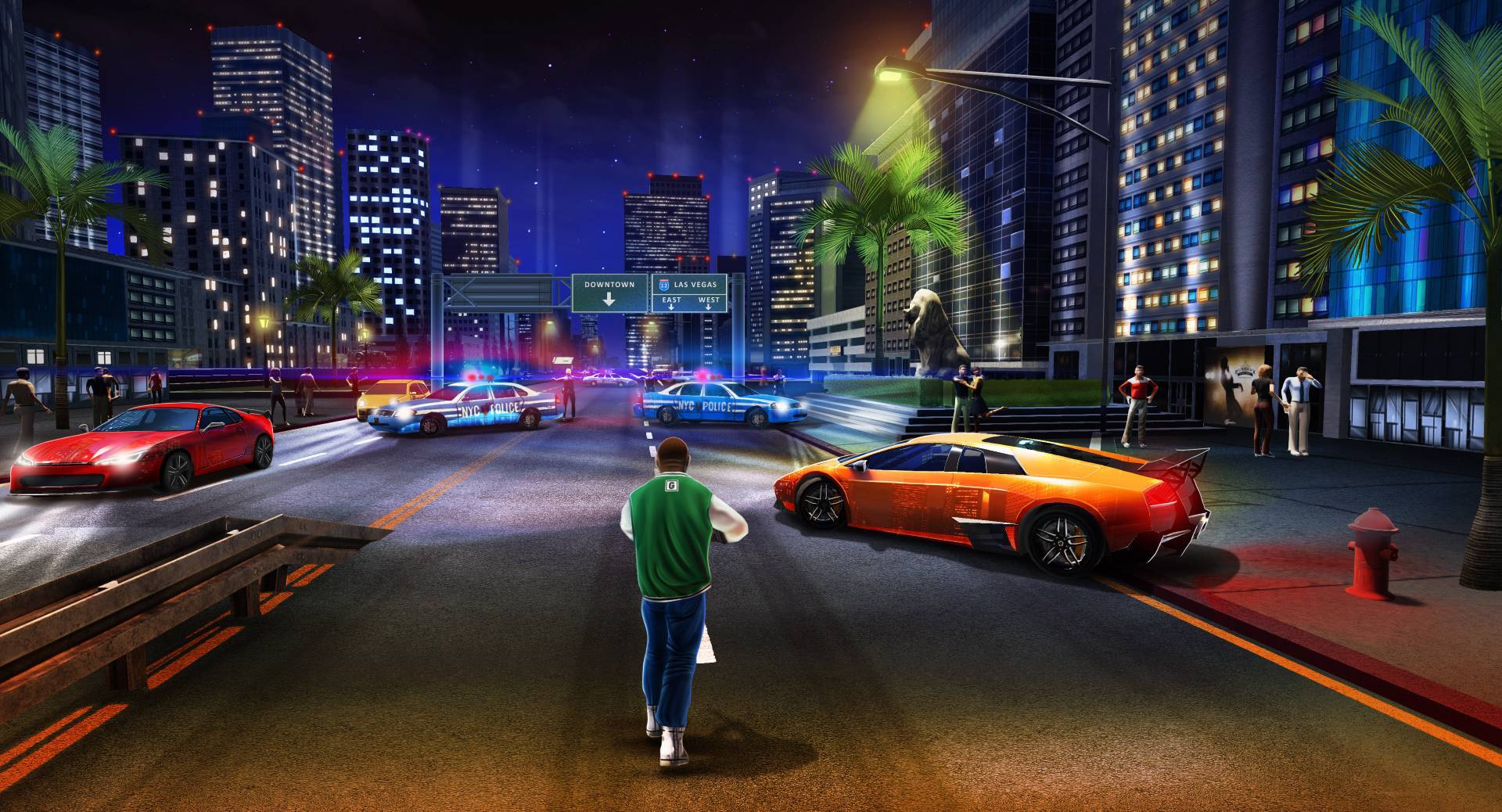The world of video games has always been a source of fascination for players of all ages. Whether it’s racing games, strategy games, or fighting games, there’s something for everyone in the vast and ever-evolving world of gaming. However, there’s a particular genre of games that often causes controversy and debate within the gaming community: violent video games. From games that let players take on the role of ruthless criminals to ones that allow them to fight their way through hordes of enemies, violent video games have been a topic of concern for parents, educators, and lawmakers alike. But what is it about these games that draws players in and Is there a correlation between violent video games and real-world violence? Let’s dive deeper into the world of “Violence” game to find out.
1. Unpacking the Appeal of “Violence” Games
There has been a lot of debate surrounding the popularity of violent video games in recent times. From the outside, it can be challenging to understand why games filled with chaos and destruction are so appealing to so many people. However, there are several factors at play that contribute to the popularity of these games among gamers of all ages.
Firstly, violence in video games is often used as a form of cathartic release. Playing a game where the player can unleash their frustrations in a safe, controlled environment can be an incredibly satisfying experience. Additionally, the adrenaline rush created by the fast-paced action of violent games can be addictive, leading to players wanting more. Furthermore, the immersive nature of these games can allow players to escape from reality for a while and experience a completely different world. Coupled with incredible graphics and exciting gameplay, it makes perfect sense why gamers keep coming back for more.
When it comes to violent games, it’s easy to point fingers and blame them for violence in the real world. However, there is no concrete evidence to support such claims. Many gamers enjoy these games purely for the entertainment value they offer, without any intention of applying their gameplay to real-life situations. Above all, game developers should ensure age restrictions are firmly in place, and players are aware of the risks involved in playing violent games. Despite the controversy surrounding them, there is no denying the appeal of violent video games, and they are here to stay.
2. The Impact of In-Game Violence on Players
Video games are an exciting form of entertainment that can stimulate the mind and bring hours of entertainment. However, like any other medium, video games can have a negative impact on people if not moderated properly. One of the most significant concerns associated with video games is .
- In-game violence can lead to desensitization, where players become less sensitive to violent content and more prone to aggressive behavior.
- Studies have shown an association between violent video games and aggression, particularly in younger players.
- In-game violence can also trigger feelings of anxiety, aggression, and frustration in players who become overly immersed in the game.
While many gamers can play violent games without issue, it’s still crucial to educate players about the potential risks and to parent/guardian should also limit the time their children spend playing violent games. This doesn’t mean that video games should be outright banned, as they can provide a wealth of positive benefits such as improved coordination, enhanced problem-solving skills, and a fun way to unwind after a long day. However, it’s important to strike a balance between fun and moderation, particularly when it comes to violent content.
3. Debating the Influence of “Violence” Games on Real-Life Aggression
There is an ongoing debate on whether or not playing violent video games leads to real-life aggression. A quick Google search will show you two sides of the argument, the first claiming that violent video games lead to violent and aggressive behavior. The second side argues that there is no concrete evidence to support this claim.
It is important to understand that video games are not a direct and sole cause of violent behavior, but they can have an impact on people’s attitudes and beliefs. The context in which the games are played is also important to consider. However, one cannot deny the psychological effects that violent games can have on some individuals. It is essential to educate gamers, especially younger ones, about the difference between the virtual world and the real world, and about the consequences of inappropriate behaviors.
- Video games are not necessarily a direct cause of violence
- The context in which the games are played is important to consider
- Psychological effects of violent video games cannot be denied
- Education is essential in promoting appropriate behavior in gamers
As the video game industry continues to grow, it is necessary to acknowledge the potential influence that these games may have on gamers. A more extensive study on this topic is required to obtain definitive evidence as to whether or not violent video games contribute to real-life aggression. The responsibility lies not only with the game developers but also with parents and guardians to monitor the games played by their children and engage in open communication about the influence and impact of such games on their behavior and beliefs.
- More extensive research is required to confirm the impact of violent games on aggression
- Responsibility lies with developers and parents to supervise and educate about games
4. An Exploration of the History of Controversy Surrounding “Violence” Games
Over the past few decades, violence in video games has been a topic of heated debate among gamers, parents, and lawmakers alike. The controversy has ebbed and flowed over the years, with new games entering the market that test the boundaries of acceptability. Some argue that violent games are not harmful and that they are simply a form of entertainment. Others contend that they desensitize players to violence and make them more likely to commit violent acts in real life.
The debate gained real momentum in the 1990s, with the release of games such as Doom and Mortal Kombat. Critics argued that these games glorified violence and were dangerous for young people. This led to a number of legislative efforts to limit the sale of violent video games to minors. However, these efforts were largely unsuccessful, and the gaming industry continued to grow. Today, there are many different opinions on the subject, with some saying that violent games have a negative impact on society, while others argue that they do not. Regardless of where one stands in the debate, it is clear that the issue of violence in video games will continue to be a topic of discussion for years to come. As we come to the end of our exploration of the controversial video game genre of “violence,” it is clear that opinions on its value and impact are varied and passionate. While some view these games as harmless entertainment, others worry about their potential to desensitize players to real-world violence and glorify aggression. There is no doubt that the debate will continue, as new games emerge and new studies are conducted. It is up to each individual to decide what role, if any, these games should play in their lives. As technology and gaming continue to evolve, it will be interesting to see how these questions are addressed and how our society navigates the complex relationship between media and violence.



